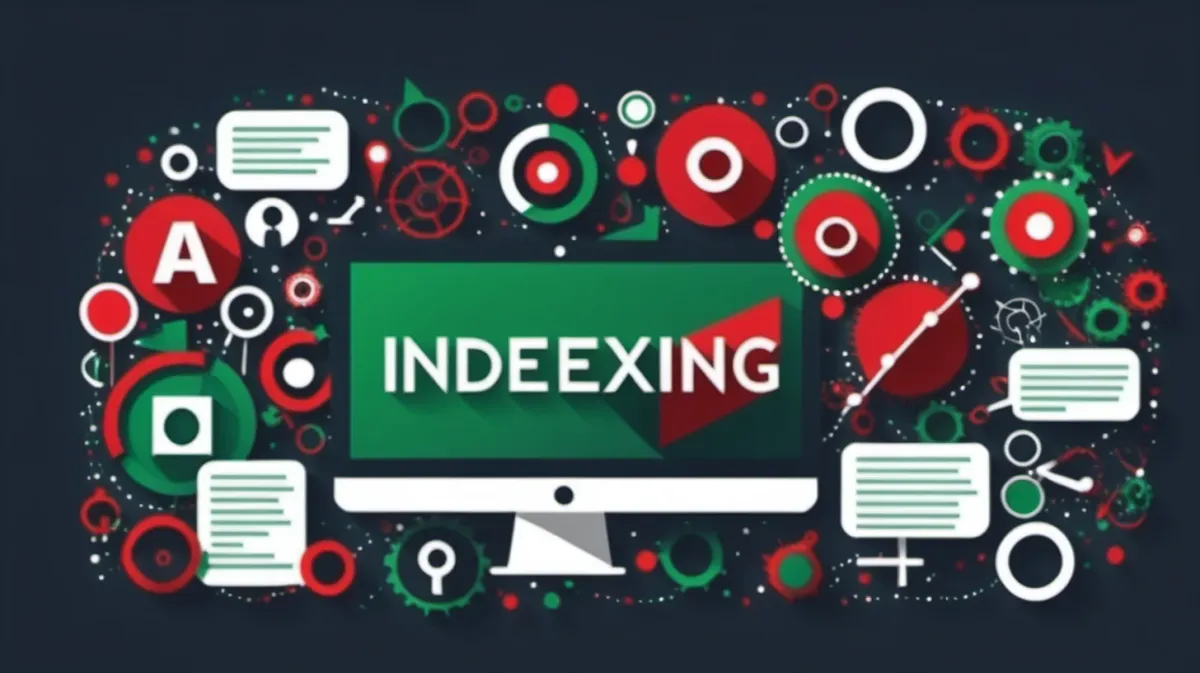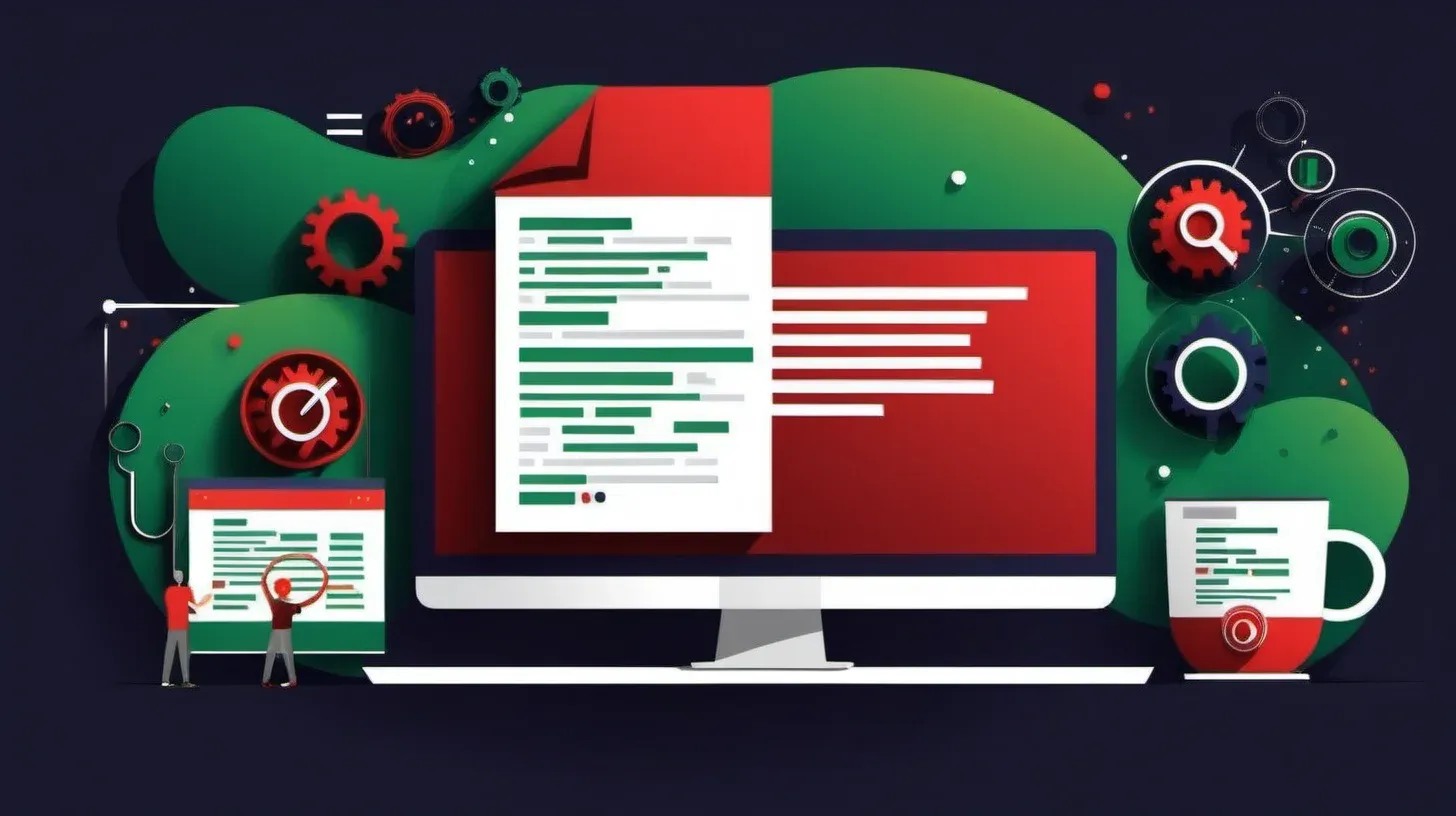SEO Basics: Navigating The World Of Link Indexing For Beginners

Breaking Down Link Indexing in SEO: A Complete Guide
What do search engines say about the sites you like? SEO and link crawling are its best-kept secrets!
Related reading: Linkbot's automated internal linking, check indexing status, indexing acceleration techniques, ensure proper sitemap configuration.
Related reading: Linkbot's automated internal linking, check indexing status, indexing acceleration techniques, ensure proper sitemap configuration.
The world of SEO can be overwhelming for beginners, with its complex terminology and ever-changing algorithms. However, understanding the basics is crucial for success in this digital age.
One essential aspect of SEO is indexing, which plays a crucial role in search engine optimization.
In this article, we will dive into the concept of indexing in SEO and its importance. Let’s get in!
What Is Indexing In SEO?
Indexing in SEO, or SEO indexing refers to the process of search engines organizing and storing information about web pages.
Think of it as a library cataloging system, where each web page is given a specific location and category for efficient retrieval. When a user performs a search query, the search engine quickly sifts through its index to deliver relevant and accurate results.
It is the foundation on which search engine optimization is built, and without proper SEO indexing, your website may struggle to gain visibility and rankings. So, make sure to pay attention to indexing and optimize your website for better SEO success.
Importance Of Crawling And Indexing In SEO

Web crawling refers to the process of search engine bots systematically browsing through websites to discover and analyze content. This is important for search engines to understand the relevance and value of a website's content.
Without crawling, search engines would not be able to index and rank websites accurately. This is where indexing comes into play - it is the process of storing and organizing the information gathered by crawling. By indexing a website, search engines can quickly retrieve relevant information when a user searches for a particular keyword.
The interdependence of crawling and indexing is crucial in the SEO process.
Effective crawling sets the stage for accurate indexing, which in turn helps search engines deliver relevant and up-to-date search results to users. This is why it is important for websites to have a clear and organized structure, as it makes it easier for search engine bots to handle crawling and indexing in SEO.
Additionally, regular crawling and indexing ensure that the most recent information is available to users, which is crucial in today's fast-paced digital landscape.
REMEMBER: If crawling isn't done right, search engines might miss important updates or useful content, which could hurt a site's visibility.
Understanding Search Engine Indexing Algorithms:
Search engine indexing algorithms are complex systems that determine the ranking of web pages in search results. These algorithms consider various factors, such as relevance, quality of content, website authority, and user experience, to determine the most relevant and useful pages for a particular search query.
As search engines constantly evolve to adapt to changing search trends and user behaviors, it is essential to understand the key factors and criteria they consider when indexing pages.
This knowledge can help businesses optimize their content to align with these algorithms and improve their visibility in search results.
One crucial factor in search engine indexing is relevance. This refers to how closely a web page's content matches a user's search query.
The quality of content, including its uniqueness, accuracy, and depth, also plays a significant role. Furthermore, search engines also consider a website's authority, which is determined by its backlinks and overall credibility.
In addition to these factors, user experience is also vital. This includes elements such as page load speed, mobile-friendliness, and easy navigation.
By understanding these factors and optimizing content accordingly, businesses can improve their chances of ranking higher in search results and reaching their target audience effectively.
How To Do Indexing In SEO

Indexing is the process of adding web pages to a search engine's database, also known as the index. This allows the search engine to quickly and efficiently retrieve relevant results when a user makes a query. Let's take a closer look at how SEO indexing works.
Crawling
Before a page can be indexed, it needs to be discovered by search engines. This is where crawling comes in. Search engines use bots, also known as spiders, to scan and follow links on web pages. These bots then gather information about the content and add it to the search engine's index.
Best practices include crafting clean URL structures, implementing redirects judiciously, and avoiding excessive use of JavaScript that may impede crawling efficiency.
Adding To The Index
Once a page has been crawled and its content has been analyzed, it is added to the search engine's index. This allows the page to be included in search results when relevant queries are made.
Data Organization
The data in the index is organized based on various factors, such as keywords, relevance, and popularity. This helps the search engine to quickly retrieve relevant results when a user makes a query.
Ranking Indexed Content
When a user makes a search query, the search engine uses its algorithm to rank the indexed content and display the most relevant results first. This is where SEO strategies such as keyword optimization and backlinking come into play.
Query Processing
Once a user enters a query, the search engine's algorithm processes the query and matches it with relevant content in the index. This process is constantly evolving, with search engines constantly updating their search engine indexing algorithms to provide more accurate and relevant results.
Display Of Search Results
Finally, the search engine displays the search results in a list based on their ranking. The higher the page is ranked, the more likely it is to appear at the top of the search results.
If you're wondering how to do indexing in SEO, it involves optimizing your website so that search engines can efficiently crawl and include your pages in their index.
Tips For Improving Your Website Indexing

Now that you understand the basics of indexing, here are some tips for improving your website's indexing and visibility on search engines.
Use The Right WordPress SEO Tool
If you have a WordPress website, using a reliable SEO tool can help improve your website's indexing. Plugins like Yoast SEO or All in One SEO Pack provide robust features to optimize content, meta tags, and other elements crucial for search engine crawlers. These tools can help you optimize your content and ensure that it is easily discoverable by search engine bots.
Optimize Your Sitemaps
Sitemaps provide a list of all the pages on your website, making it easier for search engine bots to crawl and index your content. Make sure your sitemap is up to date and includes all relevant pages on your site.
Leverage The IndexNow Protocol
IndexNow is a protocol that allows websites to notify search engines of new or updated content, helping to speed up the indexing process. By leveraging this protocol, you can ensure that your new content is indexed quickly and accurately.
Optimize Your Robots.txt File
The robots.txt file tells search engine bots which pages on your website should or should not be indexed. Make sure to optimize this file to ensure that the right pages are being indexed.
Linkbot's Link Indexing Tool For Improved Results

Link indexing is a crucial aspect of SEO, but it can be overwhelming for beginners. For improved results, experience the benefits of efficient link indexing with efficient tools.
In conclusion, Linkbot is a valuable tool for beginners to navigate the world of link indexing and improve SEO results through internal linking.
Remember that this is only the beginning of the trip. You must continue to monitor regularly, adjust to new algorithms, and use cutting-edge tools.
FAQs About Link Indexing
What Are The Best Practices For Optimizing Sitemaps?
To optimize sitemaps, use XML sitemaps, categorize content logically, and keep it updated. Ensure a clear and user-friendly structure, including only essential pages, to facilitate efficient crawling and what is indexing in SEO by search engines.
What Is The Index now Protocol, And How Does It Benefit Website Indexing?
The IndexNow protocol is a real-time notification system that informs search engines about content updates promptly. Leveraging this protocol ensures faster indexing of fresh content, allowing websites to stay current in search engine results.
How Does The Robots.Txt File Contribute To Website Indexing?
The robots.txt file guides search engine crawlers on which parts of a website to access or avoid. Optimizing this file is crucial for directing crawlers efficiently, focusing on priority content, and ultimately improving the overall website indexing process.
Why Is It Essential To Use The Right Wordpress SEO Tool?
WordPress SEO tools are tailored for optimizing websites built on the WordPress platform. They provide features to enhance content, meta tags, and other SEO elements, contributing to improved website indexing and overall search engine performance.
